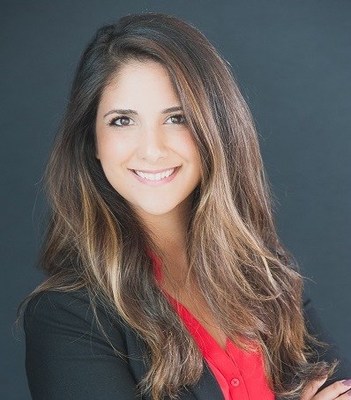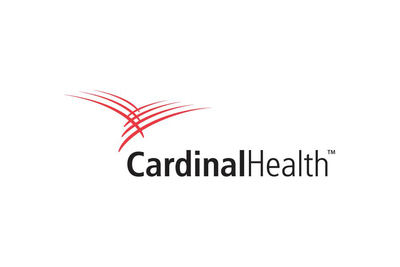Biosimilars 101: A Q&A with Sonia T. Oskouei, Cardinal Health Vice President of Biosimilars
Cardinal Health emphasizes the significance of biosimilars in enhancing healthcare access during the second annual Global Biosimilars Week. Biosimilars, which are FDA-approved treatments that mirror biologics, play a vital role in reducing U.S. drug costs, projected to save $133 billion by 2025. Currently, there are 31 FDA-approved biosimilars in the U.S., with 20 available in the market, primarily targeting cancer and autoimmune diseases. Their anticipated entry into diabetes and ophthalmology markets promises lower treatment costs for millions of patients. Cardinal Health's leadership in the biosimilars sector aims to foster competition and innovation.
- Biosimilars are projected to reduce U.S. drug costs by $133 billion by 2025.
- 31 FDA-approved biosimilars exist in the U.S., enhancing treatment options.
- Biosimilars are expected to be 15% to 30% lower in price than reference products.
- Biosimilars saved $7.9 billion in 2020, with significant future savings anticipated.
- Expansion into diabetes and ophthalmology could enhance accessibility and affordability.
- Complex U.S. healthcare market dynamics hinder wider biosimilar adoption.
- Stakeholder incentives often misaligned, affecting biosimilar utilization.
- Knowledge gaps among healthcare providers and patients may limit product acceptance.
Insights
Analyzing...
DUBLIN, Ohio, Nov. 4, 2021 /PRNewswire/ -- Biologics are the fastest growing class of drugs in the U.S.; they bring innovative, life-changing treatments to patients with cancer and chronic diseases. Due to exclusive patents, they are also very expensive and out of reach for many. When patent exclusivity ends, that opens the door for Food and Drug Administration (FDA)-approved biosimilars – which, like biologics, are medicines made from living cells (such as yeast, bacteria or animal cells) and used to prevent and treat diseases. Like generic drugs, biosimilars are expected to produce the same clinical result as a reference product at lower costs.
In recognition of the second annual Global Biosimilars Week – a social media awareness campaign to help build understanding of and advocacy for biosimilars – we spoke with Sonia T. Oskouei, PharmD and Cardinal Health's Vice President of Biosimilars. Oskouei leads the company's overall biosimilar strategy and serves on the Board of Advisors for The Center for Biosimilars. Here, she discusses the significant impact that biosimilars will have on the future of healthcare.
Q: Let's start with the basics: How do biosimilars compare to biologics, and why are they important to healthcare?
A: A biosimilar is just as safe and effective as an existing FDA-approved biologic (referred to as the "reference product"). Unlike generics, which are manufactured from chemical compounds and can be replicated identically, biologics are large, complex molecules that are manufactured from living cells. Because they are made from living cells, there is inherent variability associated with them; they cannot be replicated identically, and that is why they are called "biosimilars." In the U.S., biosimilars are currently used to treat patients with cancer, kidney diseases and autoimmune diseases, such as rheumatoid arthritis and Crohn's disease.
Biosimilars advancements in the U.S. began when the Biologics Price Competition and Innovation Act was enacted in 2010, which established an abbreviated pathway to FDA approval for biosimilars, with the aim of enabling greater patient access to lower-cost, high-quality products.
Five years later, the first biosimilar was approved by the Food and Drug Administration (FDA). Since then, 30 additional biosimilars, spanning the therapeutic areas of oncology, rheumatology, diabetes and, most recently, ophthalmology, have gained approval. Industry analysts say that biosimilars are on track to reduce U.S. drug costs by
Q: If biosimilars are not exactly the same as their reference products, how do we know they will work the same way in patients?
A: The FDA requires biosimilars to meet rigorous approval standards, which means patients and healthcare professionals can be assured of their safety, efficacy and quality – just as they would the reference products. The approval process requires biosimilar manufacturers to submit data that demonstrates there is no clinically meaningful difference from the reference biologic. While the data requirements for biosimilar approvals differ from requirements for reference biologics, biosimilars have equally rigorous approval standards.
Q: What does "interchangeability" mean and why it is important?
A: Interchangeability is a regulatory designation for biosimilars that is unique to the U.S. The designation allows "pharmacist-level substitution," meaning that a pharmacist can substitute the branded/reference biologic with the biosimilar per state laws, without consulting with the prescribing physician (similar to how pharmacists routinely substitute generic drugs for brand name drugs). For biosimilars dispensed at the retail pharmacy and covered under the patient's pharmacy benefit (such as insulin and Humira biosimilars), the interchangeability designation is important, because it will enable pharmacists to support patients with accessing high quality treatment options at the lowest cost.
All biosimilars – whether interchangeable or not – meet the same rigorous regulatory standards for approval set by the FDA.
Q: Why are biosimilars important to the U.S. healthcare system?
A: Biologics are the most expensive medicines in the U.S. For a patient managing a complex disease or diseases, biologics can cost tens of thousands of dollars each year. Biosimilars are expected to be priced
We are already seeing how biosimilars are reducing costs: in 2020 alone biosimilars saved
Q: If biosimilars are much more affordable, why are they not more widely used?
A: It is no secret that the U.S. healthcare market is complex; more specifically, the payer dynamics which dictate how drugs are reimbursed is complex. Although biosimilars are generally priced lower, stakeholder incentives are not always aligned to enable or support biosimilar adoption. In addition to the financial considerations, continued knowledge gaps among some key stakeholders (including providers and patients) regarding biosimilars can be a barrier to adoption. The lack of familiarity with biosimilars contributes to greater hesitancies with these products. This is a key driver behind congressional and FDA activities, including this year's passing of the Advancing Education on Biosimilars Act, intended to increase education and awareness among providers.
Q: How many biosimilars are on the market in the U.S.?
A: Today, there are 31 FDA-approved biosimilars in the U.S., 20 of which are available on the market. (The remaining products have delayed launches primarily due to patent litigation settlements between the reference biologic and biosimilar companies.) Of the 20 biosimilars available, 17 are used for treatments associated with cancers; the remaining three are used to treat autoimmune conditions.
All biosimilars currently available are primarily healthcare provider-administered products – which are mainly administered in a hospital or physician clinic setting. However, biosimilars are on the verge of expanding into two new therapeutic areas: diabetes and ophthalmology. Semglee (insulin glargine-yfgn), which is the first FDA-approved insulin biosimilar with an interchangeable designation to treat diabetes, will help lower costs for one of the most expensive drug categories on the market. It also can mean that millions of U.S. diabetes patients may soon have access to high-quality, lower-cost treatment options for insulins. Importantly, this product – which is expected to launch later this year – will also be the first biosimilar available at retail pharmacies.
In September, the FDA approved the first ophthalmology biosimilar to treat retinal conditions including neovascular age-related macular degeneration (AMD), which is the leading cause of blindness in the U.S., affecting approximately 11 million Americans. This product is expected to launch next summer. It has the potential to significantly lower treatment expenses for AMD, which is associated with significant financial burden for patients, with estimations that treatment can cost a patient as much as
This is really exciting: The expansion of biosimilars into these new product categories, and into retail pharmacies, may represent a tipping point for widespread adoption of biosimilars across the U.S. over the next few years.
Q: What does all of this mean for the future of healthcare?
A: Making high-quality healthcare accessible to all Americans is one of the most significant challenges facing the U.S. healthcare system. Biosimilars have the potential to significantly improve health equity by driving competition and lowering costs – with the ultimate goal of enabling more patients with severe and chronic conditions to access the care they need.
These agents are key to helping address the significant financial burden associated with treatments that are needed by millions of patients – in the U.S. and around the world. The Biologics Price Competition and Innovation Act was intentionally created with two key words in the name: "competition" and "innovation." These terms go hand in and hand: One of the most exciting promises of biosimilars is the ability to ultimately free up the healthcare dollar to make way for the next generation of innovative treatments that will further elevate healthcare delivery and help people live longer, healthier lives.
Q: How does Cardinal Health work with biosimilars?
A: Cardinal Health distributes all launched biosimilars across all sites of care where they are approved for use – including physician offices, health systems and retail and specialty pharmacies nationwide. We provide the education, analytics and technology tools (including a new interactive tool that provides key guidance on navigating state-by-state interchangeability laws) to help our provider and pharmacy networks make informed decisions about how they can adopt biosimilars.
In addition, our Specialty Solutions business works directly with biosimilar manufacturers to help them navigate the path toward clinical development, regulatory approval and commercialization.
About Cardinal Health
Cardinal Health (NYSE: CAH) is a distributor of pharmaceuticals, a global manufacturer and distributor of medical and laboratory products, and a provider of performance and data solutions for health care facilities. With 50 years in business, operations in more than 35 countries and approximately 44,000 employees globally, Cardinal Health is essential to care. Information about Cardinal Health is available at cardinalhealth.com.
Contacts
Media: Marcia Frederick, marcia.frederick@cardinalhealth.com and (614) 757-9968
Investors: Kevin Moran, kevin.moran@cardinalhealth.com and (614) 757-7942
![]() View original content to download multimedia:https://www.prnewswire.com/news-releases/biosimilars-101-a-qa-with-sonia-t-oskouei-cardinal-health-vice-president-of-biosimilars-301417003.html
View original content to download multimedia:https://www.prnewswire.com/news-releases/biosimilars-101-a-qa-with-sonia-t-oskouei-cardinal-health-vice-president-of-biosimilars-301417003.html
SOURCE Cardinal Health








